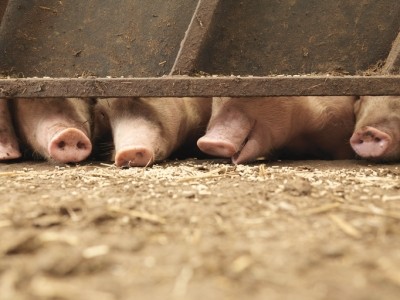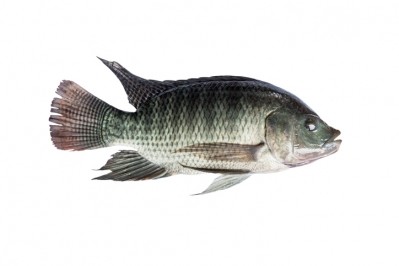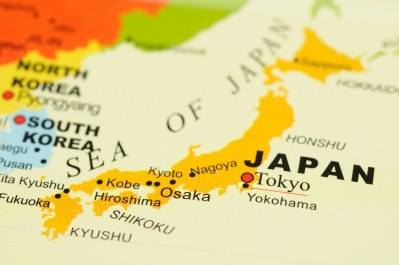‘We have positioned ourselves well in the feed additive space and that is something we can accelerate with Adisseo’

“It is a very positive step. We play in the same area but with different products. The sharing of technologies will bring a wealth of opportunities for both companies, and Nutriad and Adisseo are both extremely ambitious." he said.
Shareholder story
Nutriad, which has a product range spanning sensory additives, digestive performance enhancers, mycotoxin management products, and a preservation portfolio, was originally part of the Belgian Inve group of companies.
Rabobank and the Royal Bank of Scotland (RBS), long involved as financiers in that group, took over Inve holding in 2012, as part of a debt-for-equity swap. Inve Aquaculture, Nutriad’s former sister company, was sold to Benchmark Holdings in 2015, and the two shareholders, more custodians than interested in running the business, had been looking to divest Nutriad since.
“Rabobank and RBS made the necessary investments in the company over the years, but were never in the position to develop a long term strategy. It was no secret to the market the interest of our shareholders was to exit the portfolio. They probably held on longer than expected.”
He said, at a certain point in time, the shareholders had considered divesting of Nutriad and Inve Aquaculture as a combined business. However, it was decided that the value of the two entities together would limit the number of players able to acquire at such scale.
“It was eventually decided to go with Inve Aquaculture first. It took a while for Nutriad to follow. There were some changes to staffing in the financial institutions. It is never easy when you have two shareholders at the same time. In the middle of this year, though, we decided to relaunch the [divestment] process, and the outcome of the transaction is very good for our shareholders.”
Future synergies
He said for both Adisseo and Nutriad, the deal is a great match and that there are many potential synergies between the two companies.
The entire team, he said, is very positive about the acquisition and is ready to start working on the integration. The aim is to keep all current Nutriad employees involved going forward and Visser remains committed to the company, he said.
“The value of Nutriad is in its people. Of course, we build on financial and technical operational excellence, but it is the people that drive the value and the company’s network. That is part of the attraction of Nutriad as a company. We are committed to continuously work with the excellent people who have created the growth over the past few years.
“We are now in a position to look forward. In a sales process, with the exit of your main shareholders hanging over your heads, of course there is a different dynamic. With Adisseo we will work on long term strategies. It has bought into our business plan, which is based on investing in people, investing in product development, and in marketing. There are now opportunities to go and strengthen the Nutriad proposition and we are very excited about that.”
He claimed that Nutriad has done extremely well to grow the business organically over the past few years, considering the uncertainty around divestment plans.
“We have shown excellent resolve and have positioned ourselves well in the feed additive space and that is something we can accelerate with Adisseo.”
Chinese deal
When asked why Nutriad acquired the remaining 45% stake in its joint venture in China – the Nantong based Feed Flavour International (FFI), Visser said:
“We felt it was a logical strategic next step. Of course, we were 55% shareholders already. We wanted to acquire the remaining 45% stake for a long while, as we also have a company in China that sells the non-palatability products and we wanted to bring those two companies together, something that was difficult to do under the joint venture relationship.
“It is a coincidence that it came together with this [divestment] process, but the acquisition of this joint venture partner stake was a process that also took a long time to define and negotiate.”
“We have already had kick-off of the integration process between the Nutriad company and FFI and we will soon start working on finding the synergies between both of the sales teams.”
Nutriad, he said, intends to make China a separate region within Asia in terms of its sales approach. The strong network of Adisseo, also through the BlueStart group, will help accelerate that process, said the CEO.
Growth opportunities globally
Regarding the regions with real growth potential for the multinational player, he said Asia Pacific remains critical, despite the challenges in certain markets seen throughout 2017.
“We have done quite well in South America. We see Brazil is a very competitive market. We have been working on the Spanish speaking markets in South America over the past two years and that is beginning to pay dividends.
“You see all throughout the world, in the US and in selected markets in Asia – Vietnam and Indonesia - restrictions on the use of antibiotics and that development is playing to our strengths."
Nutriad is traditionally very strong in swine and poultry markets – they account for roughly 70% of its sales.
“However, we are growing aggressively in aquaculture specialties and we believe there is a lot of upside, a lot of future growth to be had. We have positioned ourselves as specialty niche players in that market.”
The ruminant sector accounts for 10 to 15% of Nutriad’s sales currently.
“We feel that there is growth potential in the ruminants sector in the US, certain markets in Europe and in the Middle East and we also see it as an up and coming segment in Asia as well - we are eyeing the Chinese dairy market, for example. We are looking into strengthening our team in strategic ruminant markets like India as well. Our product portfolio and our local network will help us grow our market share in those regions.”








